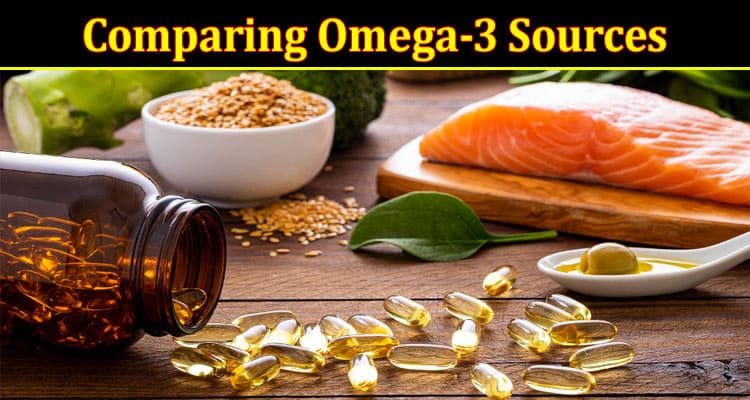In the realm of health and nutrition, Omega-3 fatty acids have long been celebrated for their myriad benefits. From supporting cognitive functions to promoting heart health, these essential fats have secured their place in the spotlight. But as the demand for Omega-3s grows, so does the conversation around their sources. Fish oil has traditionally been the go-to, but with the rise of vegetarianism, veganism, and environmental concerns, plant-based alternatives are gaining traction. Let’s delve into the comparison between fish oil and its plant-based counterparts.
Fish Oil: The Traditional Powerhouse
Fish oil, derived primarily from fatty fish like salmon, mackerel, and sardines, is a rich source of both EPA (eicosapentaenoic acid) and DHA (docosahexaenoic acid). These long-chain Omega-3s are directly utilized by the body, offering benefits such as:
- Improved heart health.
- Enhanced brain function.
- Reduced inflammation.
However, concerns about overfishing, marine pollution, and potential contaminants in fish have made consumers reconsider their sources.
Plant-Based Alternatives: The New Contenders
While plant sources of Omega-3s primarily provide ALA (alpha-linolenic acid), which the body then converts to EPA and DHA, they offer several advantages:
- Flaxseeds and Chia Seeds: Rich in ALA, these seeds can be easily incorporated into diets. They’re also sustainable and don’t carry the risk of marine contaminants.
- Algal Oil: Derived from algae, this source provides direct DHA and, in some cases, EPA. It’s a sustainable option that’s also suitable for vegans.
Bioavailability: How Do They Compare?
While fish oil provides Omega-3s that are readily available for the body to use, plant-based sources require conversion. The conversion rate of ALA to EPA and DHA in the body is relatively low. However, algal oil stands out as it offers DHA (and sometimes EPA) in a form directly utilized by the body, making it a strong competitor to fish oil.
Environmental and Ethical Considerations
The environmental impact of sourcing Omega-3s cannot be ignored. Overfishing poses a threat to marine ecosystems. Plant-based sources, especially algae, can be cultivated sustainably without harming marine life. Additionally, for those who abstain from animal products for ethical reasons, plant-based Omega-3s align with their values.
Taste and Culinary Applications
Fish oil, especially in liquid form, can have a distinct taste that some might find off-putting. Capsules can mitigate this, but they don’t offer the versatility of plant-based sources. Flaxseeds and chia seeds, for instance, can be sprinkled on salads, blended in smoothies, or used in baking, making them a delicious and nutritious addition to various dishes.
The Omega-3 Market Amidst the Pandemic
The COVID-19 pandemic has significantly influenced the omega-3 market. Initially, there was a surge in omega-3 supplement sales as consumers stockpiled supplements. However, the pandemic also accelerated the shift from traditional retail sales to e-commerce, especially in regions with strong e-commerce platforms like the U.S. This shift, combined with logistical challenges such as shipping disruptions and shortages of essential components like gel capsules, has impacted the omega-3 supplement market.
The Power of Research in Omega-3s
The omega-3 market’s health has been bolstered by strong research over the years. Continuous studies have reinforced consumer confidence in the health benefits of omega-3s, regardless of whether they come from fish or supplements. Recent research has shown that individuals with higher omega-3 EPA and DHA blood levels tend to live longer. Furthermore, a comprehensive meta-analysis revealed that EPA and DHA supplementation significantly reduces the risk of heart attacks and related events.
The Rise of Plant-Based Omega-3s
With growing concerns about overfishing, climate change, and sustainability, there’s a noticeable shift towards plant-based omega-3 sources. These sources, such as genetically-modified canola oil, offer a sustainable alternative without compromising the health benefits associated with omega-3s. Brands are now focusing on offering omega-3 solutions that are not only beneficial for health but also for the planet.
The Future of Omega-3 Supplements
The omega-3 market is evolving, with a shift from commodity selling to solution selling. This change emphasizes selling ingredients based on specific health applications. As the demand for higher concentrate omega-3s grows, brands are focusing on delivering products that offer higher absorption rates and advanced formulations. The discovery of specialized pro-resolving mediators (SPMs) is seen as a game-changer for the omega-3 category, and it’s expected to be a significant subject of research in the coming years.
Conclusion: Making an Informed Choice
The choice between fish oil and plant-based Omega-3s boils down to individual preferences, dietary restrictions, and values. Both sources have their merits. By understanding the benefits and limitations of each, consumers can make an informed decision that aligns with their health goals and ethical beliefs.

